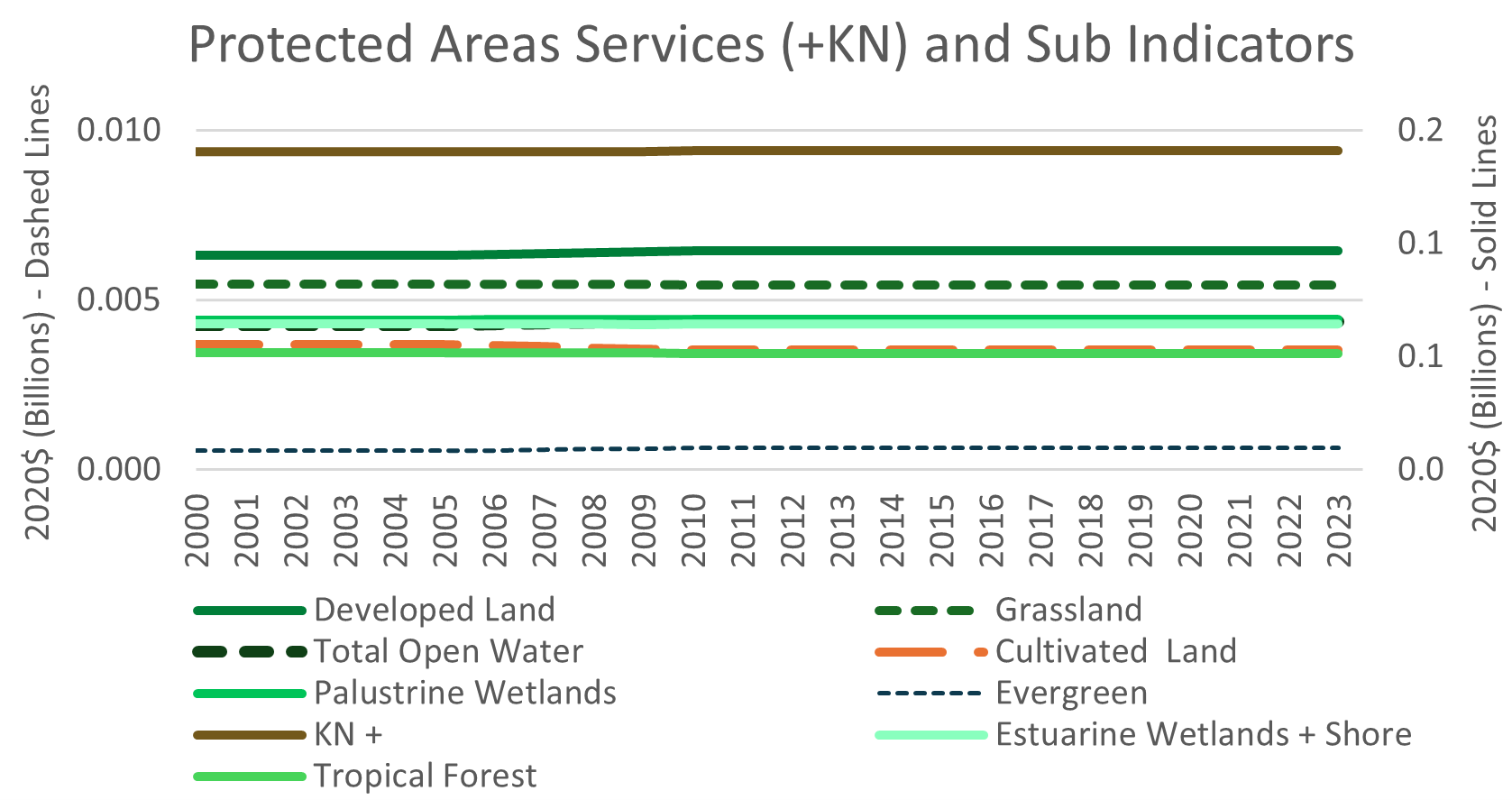HI GPI – PROTECTED AREAS SERVICES
Protected Areas Services (+KN)
GPI = U(PCE_ADJ + PP + KB + KS + KH – SC + KN – POL – DKN)
where PCE_ADJ = (PCE – DEFR – HI – CDE)*INQ
Protected Areas Services (+KN) 
Natural capital provides ecosystem services that enhance welfare beyond merely provisioning market goods and services that may be already accounted for in market consumption.
GPI measures the costs and benefits of economic activity. Protection of nature is an economic activity because revenue from the state goes to its management. This is why GPI does not include all-natural areas and only includes protected areas. Also, GPI focuses on non-commercial use protected areas because commercial use at protected areas may degrade land and/or already be accounted for in market-based GPI components.
HI GPI and Protected Areas Services and KN Sub Indicators Excel Table
Utilizes USGS National Land Cover Database (NLCD) and USGS National Gap Analysis Program’s protected area database to estimate a stock of the state’s protected areas managed for non-commercial use by land cover type. Stocks are then multiplied by ecosystem service estimates from similar land cover types. The latest available data is used as a proxy for the following years and these indicators are relatively flat due to slight changes that do not appear at the billion dollar level.
This indicator estimates the value of ecosystem services flowing from protected areas across a variety of biome types. Notably, land cover data for Hawai‘i does not yet include offshore biomes, thus these are excluded from the estimates. The biomes include: developed, cultivated, grassland, tropical forest, palustrine wetlands, estuarine wetlands and shore, desert, and open (fresh) water.

